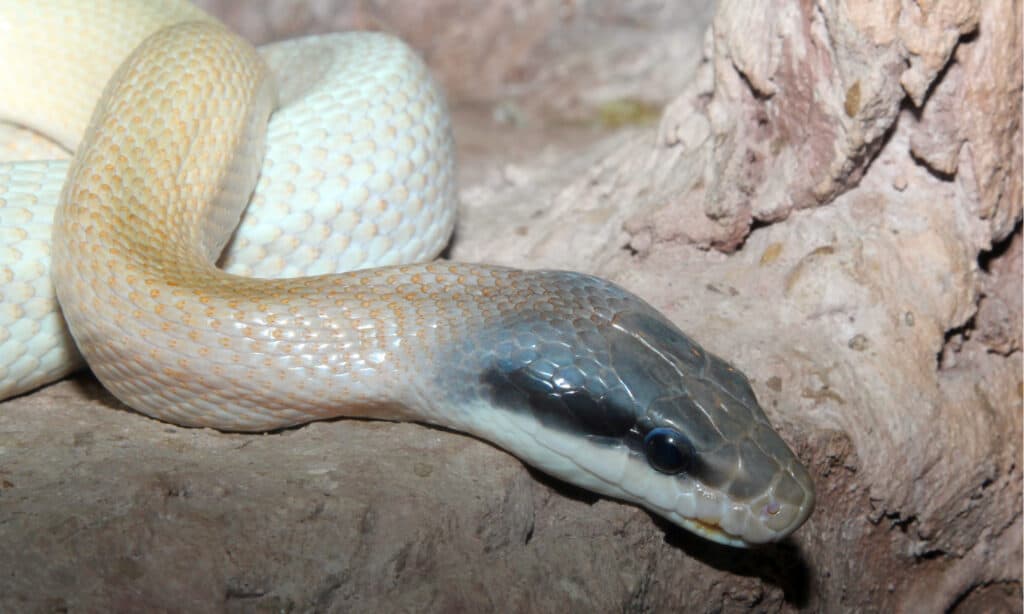Introduction
When it pertains to the fascinating globe of serpents, couple of types catch the imagination fairly like the child tiger serpent. Understood for their distinctive coloration and powerful venom, these serpents are an essential component of Australia's unique community. In this comprehensive article, we will look into various elements of infant tiger serpents, including their actions, environment, and exactly how to safely communicate with them. Whether you're a wildlife enthusiast or simply interested about these creatures, comprehending child tiger snakes can assist foster a deeper gratitude for nature.
Baby Tiger Snakes: What You Required to Learn About Their Habits and Habitat
What Are Infant Tiger Snakes?
Baby tiger snakes are adolescent types of the very venomous varieties understood medically as Notechis scutatus These serpents are mostly found in seaside regions of Australia, particularly in Tasmania and southerly Victoria. As they expand, their pigmentation changes from a more muted combination to the characteristic yellow and black bands that provide their name.
One remarkable element of child tiger snakes is their size; hatchlings typically measure around 25-30 centimeters in length. Despite their small stature, they possess a shocking quantity of poison that can be harmful to people if bitten.
Physical Characteristics
Tiger snakes have several essential physical characteristics:
- Coloration: The distinctive banding pattern typically comes to be a lot more pronounced as they mature. Size: Adults can get to sizes of up to 2 meters. Body Shape: They have a durable body that aids in swimming and terrestrial movement.
Where Do Baby Tiger Snakes Live? Recognizing Their Habitat
Understanding the environment choices of infant tiger snakes is crucial for both preservation efforts and public safety and security. These serpents flourish in different atmospheres:
- Wetlands: Marshes and swamps supply enough searching grounds. Coastal Regions: Usually located near beaches where they can quest for prey. Woodlands: Dense greenery supplies cover from predators.
Geographical Distribution
Tiger serpents are predominantly found along Australia's southern coast, consisting of:

- Tasmania: Home to among the most notorious populations. Victoria: Particularly in areas near water bodies.
Are Tiger Snakes Venomous? A Deep Study Their Venom
One usual question develops when talking about child tiger snakes: "Are tiger snakes poisonous?" The answer is an unquestionable yes!
Venom Composition
The poison of tiger snakes contains neurotoxins that can trigger paralysis, coagulopathy (blood clotting problems), and possibly death if without treatment. Right here's what you need to know:
- Effects on Humans: An attack from a tiger snake can lead to signs and symptoms like swelling, pain at the bite website, nausea or vomiting, and also respiratory failure.
Comparison with Other Venomous Snakes
In comparison to various other Australian serpents such as the eastern brown serpent or king brownish serpent, tiger serpent poison is thought about among one of the most powerful. Nonetheless, deaths are rare due to enhanced medical therapies and accessibility to antivenom.
Behavioral Patterns of Child Tiger Snakes
Understanding just how baby tiger serpents act is essential for those who stay in or go to areas where these reptiles are prevalent.
Nocturnal Habits
Most baby tiger snakes exhibit nighttime habits. They tend to forage for food throughout cooler night temperature levels. This adaptability helps them prevent killers while enhancing their searching efficiency.
Hunting Techniques
Their hunting methods consist of:
- Ambush Predation: Waiting inactive till victim comes close. Active Foraging: Actively relocating with plant life or along rivers trying to find food.
First Help for Snake Bites: What You Must Know
Despite being interesting creatures, experiences with child tiger snakes Best first aid practices for Australian snakebites can result in dangerous situations if bites happen. Understanding emergency treatment procedures can conserve lives.

Immediate Tips After a Bite
Remain tranquility; panic increases heart rate. Immobilize the influenced limb making use of a splint or bandage. Seek prompt clinical interest-- antivenom might be necessary.Creating a Snake Bite Emergency Treatment Kit
A well-prepared first aid kit need to include:
|Product|Function|| ------------------------------|--------------------------------------|| Compression bandage|To paralyze the limb|| Splint|Maintains broken bones or joints|| Antihistamines|Relieves allergies|| Emergency contact numbers|Quick access throughout emergencies|
Common Myths Regarding Tiger Snakes Debunked
Many myths border these appealing reptiles; allow's clarify some misunderstandings frequently held by people.
Myth # 1: All Tiger Snakes Are Aggressive
While some individuals might exhibit protective habits when threatened, not all tiger snakes display hostility towards people unless provoked.

Myth # 2: Infant Tiger Snakes Are Much Less Unsafe Than Adults
This myth could not be additionally from the reality! Baby tiger serpents have almost as much poison as adults http://fernandopnvr292.iamarrows.com/first-aid-for-a-snake-bite-a-step-by-step-approach about their size; hence they posture considerable threats if bitten.
FAQs About Child Tiger Snakes
What do child tiger snakes eat?- They primarily consume little creatures, birds, frogs, and fish.
- Look for slender bodies with pale banding patterns that come to be more obvious as they mature.
- Yes! Birds of target and bigger reptiles may target them.
- Typically every few weeks as they proliferate throughout their very early life stages.
- While some individuals do maintain them unlawfully without licenses as a result of their harmful nature; it's typically not advised given their venomous status.
- With timely clinical treatment-- including antivenom-- the survival price is high!
Conclusion
In summary, understanding infant tiger snakes-- what they consume, where they live, how they act-- can outfit us with important expertise concerning these exceptional yet hazardous creatures. The value of education surrounding first aid procedures can not be overemphasized; knowing exactly how to respond efficiently after a bite could conserve lives while fostering respect for our slinking next-door neighbors within Australia's abundant biodiversity range.
By valuing these serpents' duties within communities-- and identifying prospective threats-- we promote conjunction rather than fear-based reactions towards one another's existence in nature's grand tapestry! Is a King brown snake poisonous Whether you're a serious hiker pondering your following experience or just curious regarding local wild animals experiences near home-- this guide functions as your trusted recommendation factor on the enigmatic globe inhabited by our pals-- the magnificent baby tiger snake!